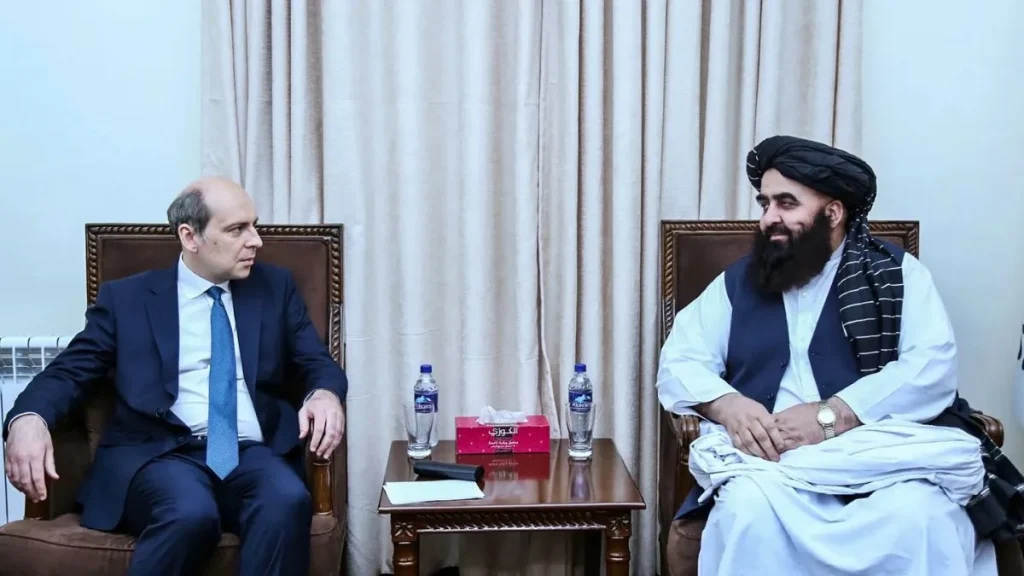nt Taliban-led government, citing a pragmatic approach aimed at enhancing regional stability, economic engagement, and counterterrorism partnerships.
Russia’s Official Statement
- Diplomatic Acknowledgment:
Russian foreign affairs officials released a statement affirming existing political ties and recognizing the legitimacy of Kabul’s leadership under the current Taliban administration. - Security & Counterterrorism Focus:
The statement emphasised that formal recognition is crucial for coordinated actions against extremist groups such as ISIS-K that threaten regional security.
Strategic Motivations Behind Recognition
- Regional Stability:
Moscow views formal diplomatic ties as key to mitigating security threats along its southern border and in Central Asia, especially from militant spillovers. - Economic Interests:
Russia aims to expand trade links a mix of energy routes, transit corridors, and licit infrastructure projects by normalising engagement with the ruling administration in Kabul. - Geopolitical Positioning:
Through this move, Russia asserts its influence in Central Asia and balances Western presence in the region, strengthening its status as a strategic pivot power.
Comparison with Global Responses
- Western Hesitation:
Major Western nations have refrained from recognising the Taliban government due to ongoing human rights concerns, especially around women’s education and political freedoms. - Preference for Conditional Engagement:
Western donor countries continue technical-level engagement and humanitarian programmes, making their recognition conditional on tangible rights and governance improvements.
Implications for Afghanistan
- Recruitment of Aid and Investment:
Recognition from Russia could open doors to foreign investment, especially in infrastructure and energy, alleviating Afghanistan’s economic crisis. - Diplomatic Expansion:
Other nations especially in Central Asia and the Middle East may follow Russia, leading to wider international recognition. - Internal Legitimacy for Taliban:
This diplomatic breakthrough could consolidate domestic authority and reinforce the Taliban’s claim to governance legitimacy.
Security Cooperation Road Ahead
- Counterterrorism Coordination:
Russia and Afghanistan plan to share intelligence on frontier extremist groups and enhance border protection efforts. - Military and Training Collaboration:
Discussions are underway on Russia hosting Afghan delegates for training programmes aimed at bolstering Afghan security forces’ capacity. - Security Partnerships:
Joint efforts are expected to counter threats from extremist networks emerging from the porous Afghan-Pakistan border region.
Broader Impact and Global Outlook
- Shift in Diplomatic Landscape:
Russia’s recognition marks a turning point in diplomatic relations with Afghanistan and may inspire similar moves among other global powers. - Economics and Aid Framework:
If other nations follow suit, Afghanistan could see increased development assistance, infrastructure financing, and regional connectivity projects. - Human Rights Watchdog Response:
International observers warn that recognition must accompany genuine progress in rights protection and inclusive governance.
Final Analysis
Russia’s decision to formally recognise the current Taliban government in Afghanistan signals a significant diplomatic pivot driven by strategic, economic, and security priorities. This move alters regional engagement dynamics and may pave the way for broader international acceptance, conditional on the Taliban delivering on internal reforms and stability guarantees.



Comments (0)
No comments yet. Be the first to comment!
Leave a Comment